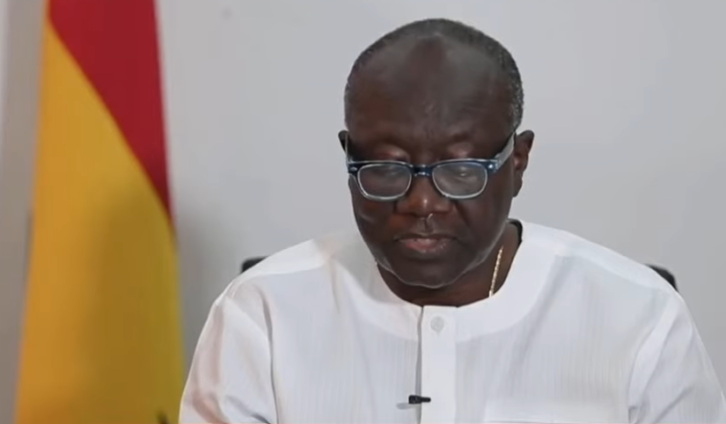The Finance Minister, Ken Ofori-Atta, has emphasised that Ghana’s International Monetary Fund is to ensure social protection.
According to him, the programme will mitigate the impact of economic adjustment on the most vulnerable, whilst strengthening existing social intervention programmes such as Lively Empowerment Against Poverty (LEAP), National Health Insurance Scheme, Capitation Grant School Feeding Programme, amongst others.
The International Monetary Fund (IMF) said in a statement after approving the $3 billion bailout package that Ghana has made progress on poverty reduction over the last three decades, although regional inequalities have deepened.
Gross Domestic Product (GDP) per capita increased from $400 to $2,300 during 1990-2020. The share of the population living below the poverty line fell from 52.7% in 1991 to 23% in 2016.
However, large regional disparities increased, with the Southern wealthiest regions seeing continuous poverty reduction, while poverty stagnated or increased in the North.
Ghana’s social spending could be more efficient and targeted to the most vulnerable.
It therefore said the targeted social protection programmes are small with annual spending at less than 0.5% of GDP.
The flagship targeted cash transfer program, the LEAP, it said has proven to be efficient in reducing poverty. However, it only covers 50% of the extreme poor, has seen an erosion of the real value of the benefits it provides and has been disbursed with considerable delays.
For education, it said Ghana spends close to 4% of GDP on education with good results in terms of enrollment but poor learning outcomes.
It pointed out that the flagship programme Free Senior High School (SHS), which covers the full cost of secondary education, has helped increase enrollment but is poorly targeted.
Key identified areas of potential improvement of education spending include strengthening primary education resources, better teacher training, and stronger performance-based funding practices.
On health, the Fund said public health expenditures amount to 3.5% of GDP.
“While Ghana performs relatively well in terms health outcomes, disparities in access remains a key issue. The National Health Insurance Scheme (NHIS) is meant to be universal but only covers half of the population. Identified reform priorities include increasing the NHIS coverage, securing its long-term funding and expanding its basic care package.”
Latest Stories
-
Ghana will take time to recover – Akorfa Edjeani
18 minutes -
Boakye Agyarko urges reforms to revitalise NPP after election defeat
37 minutes -
Finance Minister skips mini-budget presentation for third time
37 minutes -
‘ORAL’ team to work gratis – Ablakwa
45 minutes -
Affirmative Action Coalition condemns lack of gender quotas in Transition, anti-corruption teams
54 minutes -
December 7 election was a battle for the ‘soul of Ghana’ against NPP – Fifi Kwetey
56 minutes -
Social media buzzing ahead of Black Sherif’s ‘Zaama Disco’ on December 21
1 hour -
Afenyo-Markin still suffering from the massive defeat – Fifi Kwetey
1 hour -
Retain Afenyo-Markin as NPP leader, he has experience – Deputy Speaker
1 hour -
Kufuor didn’t leave behind a strong economy – Fifi Kwetey
2 hours -
It won’t be business as usual, remain humble – Fifi Kwetey to party members
2 hours -
Ebenezer Ahumah Djietror appointed as new Clerk to Parliament
3 hours -
Actress Benyiwaa of ‘Efiewura’ TV series dead
4 hours -
Ashanti Regional Chief Imam dies at age 74
4 hours -
Africa Arts Network calls for tax reform to save Ghana’s theatre industry
4 hours

